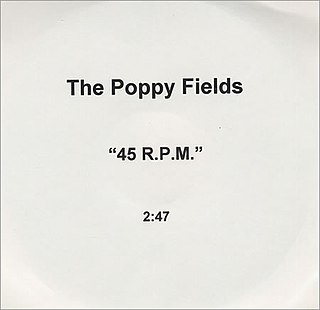 W
WA hoax is a falsehood deliberately fabricated to masquerade as the truth. It is distinguishable from errors in observation or judgment, rumors, urban legends, pseudosciences, and April Fools' Day events that are passed along in good faith by believers or as jokes.
 W
WThe 2012 phenomenon was a range of eschatological beliefs that cataclysmic or transformative events would occur on or around 21 December 2012. This date was regarded as the end-date of a 5,126-year-long cycle in the Mesoamerican Long Count calendar, and festivities took place on 21 December 2012 to commemorate the event in the countries that were part of the Maya civilization, with main events at Chichén Itzá in Mexico and Tikal in Guatemala.
 W
WBloodline is a 2008 documentary film by Bruce Burgess and Rene Barnett, a filmmaker with an interest in paranormal claims, focused on the "Jesus bloodline" hypothesis and other elements of the 1982 book The Holy Blood and the Holy Grail.
 W
WExaggeration is the representation of something as more extreme or dramatic than it really is. Exaggeration may occur intentionally or unintentionally.
 W
WFamous Impostors is the last of four non-fiction books completed by Bram Stoker, the author of Dracula. It features numerous historical impostors and hoaxes.
 W
WA humbug is a person or object that behaves in a deceptive or dishonest way, often as a hoax or in jest. The term was first described in 1751 as student slang, and recorded in 1840 as a "nautical phrase". It is now also often used as an exclamation to describe something as hypocritical nonsense or gibberish.
 W
WThe iron maiden is a torture device, consisting of a solid iron cabinet with a hinged front and spike-covered interior, sufficiently tall to enclose a human being. The first stories citing the iron maiden were composed in the 19th century. The function of iron maidens closing by themselves is considered to be a myth, heightened by the belief that people of the Middle Ages were uncivilized; evidence of their actual use is difficult to find. They have become a very popular image in media involving the Middle Ages.
 W
WDuring the 2004 presidential election campaign an image was released that showed John Kerry and Jane Fonda speaking together at an anti-Vietnam War protest. The image turned out to be a politically motivated forgery, intended to link Kerry with Fonda, whom many consider a traitor after her controversial visit to Hanoi during the Vietnam War.
 W
WA man-eating tree is a legendary carnivorous plants large enough to kill and consume a human or other large animal. Various such myths and fictional tales exist around the world.
 W
WThe Museum of Hoaxes is a website created by Alex Boese in 1997 in San Diego, California as a resource for reporting and discussing hoaxes and urban legends, both past and present.
 W
WPolybius is an urban legend concerning a fictitious 1981 arcade game. The legend describes the game as part of a government-run crowdsourced psychology experiment based in Portland, Oregon. Gameplay supposedly produced intense psychoactive and addictive effects in the player. These few publicly staged arcade machines were said to have been visited periodically by men in black for the purpose of data-mining the machines and analyzing these effects. Allegedly, all of these Polybius arcade machines disappeared from the arcade market.
 W
WThe Poppy Fields were a fictitious teenage group, invented by the Welsh rock band, The Alarm. The Poppy Fields scored a hit with the release of "45 RPM" that would become The Alarm's first hit in over a decade. Mike Peters revealed the truth on live radio as Radio 1 was conducting a 2004 broadcast of their then current chart countdown. The story was highlighted by international news outlets with several headlines being published globally.
 W
WURSAL is a jocular term coined in 2001 by Brazilian sociologist Maria Lúcia Victor Barbosa to mock criticism of left-wing politicians and intellectuals by the Free Trade Area of the Americas led by the United States. Subsequently the expression was taken seriously by Olavo de Carvalho and by Brazilian right-wingers, resurfacing on YouTube and other media as a conspiracy theory related to a supposed Latin American integration plan propagated by the São Paulo Forum.